Climate Change & Energy
Our Work
Latest in Climate Change & Energy
-
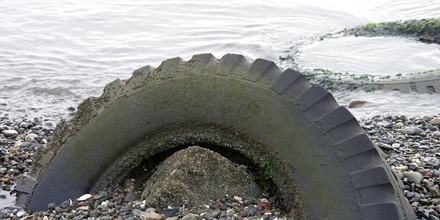
IEEP contributes to free online course on marine litter for United Nations Environment
The United Nations Environment’s second Massive Open Online Course (MOOC) on marine litter was created to educate participants at all levels and backgrounds to take action on marine ...
-
IEEP on France 24
Céline Charveriat discusses US withdrawal from Paris Accord and breaking Antarctic ice shelf.
-
IEEP on CNBC Asia
US absence and China leadership mark tectonic shift in global climate politics.
-
The consequences of climate change for EU Agriculture: Follow up to the COP21 UN Climate Change conference
With its potential to reduce GHG emissions and increase CO2 removals, agriculture has a key role to play in the EU’s climate mitigation efforts, yet Member State action is lacking. As pressure on the sector to act increases, the development of a 2050 low-carbon and resilience roadmap for European agriculture would be one step towards putting the sector on a more ambitious trajectory towards the transformation required to achieve net zero emissions by 2050.
-
Agriculture and its role in meeting the EU’s climate commitments
Sector far from reaching its climate mitigation potential, with Member States placing more emphasis on climate adaptation
-
What contributions can agricultural emissions make to the proposed Effort Sharing Regulation?
New IEEP report finds the agriculture sector can significantly contribute to the EU’s climate commitments by reducing its non-CO2 emissions. It also finds these contributions can be delivered cost efficiently with environmental co-benefits without impacting production.
-
Towards sustainability: Future policies for European livestock
The CAP is failing to reward adequately those livestock farmers who produce public goods. Brexit and CAP reform are opportunities to do better.
-
Moving the debate on sustainable bioenergy to 2030
On 30th November, the European Commission published a “Winter package” of policy proposals, including for bioenergy in the form of a revised Renewable Energy Directive. Although encouraging to answer the many requests for policy certainty, a number of key questions about the right and most appropriate approach to deliver sustainable bioenergy still remain and need further scrutiny.
-
Greening taxes and subsidies in the Pacific
IEEP will share its expertise on environmental taxation and the reform of environmentally harmful subsidies at a forum event on greening taxation and subsidies in the Pacific region during the IUCN World Conservation Congress in Hawaii.
-
Comparing costs of implementing EU policy across Member States
The report assesses if there are differences in the costs of implementation of EU environmental law across Member States.
-
Land suitability assessments for bioenergy feedstocks in the EU – a review of data sources
Current data availability is inadequate to undertake a detailed national or European level study of land areas that are underutilised and could be considered available for bioenergy production within the EU.
-
New report launch: Call for a new vision for responsible renewable energy with a clear European dimension
Claude Turmes MEP hosted an event launching both IEEP’s report and a debate on the future of renewable energy in Europe. In the our report IEEP present how a resource efficient energy system might be delivered in a way that minimises impact on biodiversity and the wider environment.
-
The EU’s climate targets, land use, and forests: delivering biodiversity-friendly mitigation
Land use and forestry is a new frontier for EU climate policy. IEEP’s report for FERN sets out some ideas for how a supportive policy framework can deliver both climate and biodiversity benefits.
-
How well has EU Cohesion Policy supported energy efficiency in buildings?
IEEP, with Danish consultancy Ramboll, has evaluated the contributions of the 2007-2013 Cohesion Policy programmes to energy efficiency in public and residential buildings.
-
A New Vision for Responsible Renewable Energy with a Clear European Dimension
Renewable energy is key to the decarbonisation of Europe’s energy supply, however, the scale of expansion needed will have significant impacts over a considerable area. This new report suggests how a resource efficient energy system might be delivered in a way that minimises and mitigates impacts on biodiversity and the wider environment.
-
Volkswagen: Painful Lessons
The latest edition of IEEP's newsletter is now available. David Baldock discusses Volkswagen and lack of implementation and compliance across EU environmental policy in general. Also: greening of the CAP; Marine Protected Areas; and LULUCF.
-
Assessing sustainable biomass availability
Dr. Ben Allen presented IEEP’s views on the sustainable use of biomass at an international conference in Brussels. Understanding the scale of the resource is a key part of determining appropriate policy intervention and ensuring commercial viability.
-
New report: delivering low carbon transport fuels post 2020
How should EU policy support the transition to low carbon transport fuels post 2020? A new IEEP led report argues that future policies should be differentiated to tailor support towards specific objectives and technologies that offer the greatest potential for a low carbon future.
-
New report is out: delivering low carbon transport fuels post 2020
How should EU policy support the transition to low carbon transport fuels post 2020? A new IEEP led report argues that future policies should be differentiated to tailor support towards specific objectives and technologies that offer the greatest potential for a low carbon future.
-
Looking beyond Paris
The latest edition of IEEP's newsletter is now available. David Baldock argues that in the next six months the EU has a substantive role in contributing to agreement on an ambitious but credible set of SDGs and more stretching climate targets. Also: energy efficiency and security; bioeconomy; and circular economy.
Related
-

Developing a sustainable future for biofuels
Disseminating knowledge and informing the debate around the future of biofuel policy in the EU.
Highlights
-

The consequences of climate change for EU Agriculture: Follow up to the COP21 UN Climate Change conference
With its potential to reduce GHG emissions and increase CO2 removals, agriculture has a key role to play in the EU’s climate mitigation efforts, yet Member State action is lacking. As pressure on the sector to act increases, the development of a 2050 low-carbon and resilience roadmap for European agriculture would be one step towards putting the sector on a more ambitious trajectory towards the transformation required to achieve net zero emissions by 2050.
-
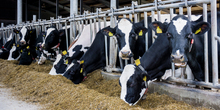
What contributions can agricultural emissions make to the proposed Effort Sharing Regulation?
New IEEP report finds the agriculture sector can significantly contribute to the EU’s climate commitments by reducing its non-CO2 emissions. It also finds these contributions can be delivered cost efficiently with environmental co-benefits without impacting production.
-

Land suitability assessments for bioenergy feedstocks in the EU – a review of data sources
-

The EU’s climate targets, land use, and forests: delivering biodiversity-friendly mitigation
-

How well has EU Cohesion Policy supported energy efficiency in buildings?
-
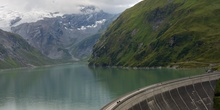
A New Vision for Responsible Renewable Energy with a Clear European Dimension
-

Re-examining EU biofuels policy: A 2030 perspective
-
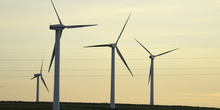
Assessing Scotland’s progress on the environmental agenda
-

Costs and benefits of energy savings
-

Does the EU benefit the UK environment?
-
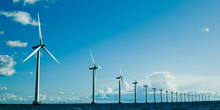
Use of financial instruments to address climate change policy objectives
-

Biofuels and ILUC – Q&A
-

Mainstreaming climate in EU funds - the progress to date
-

The Indirect Land Use Change Impact of the Use of Biofuels in the EU
-
The Land-Use Implications of EU Bioenergy Policy: Going Beyond ILUC
